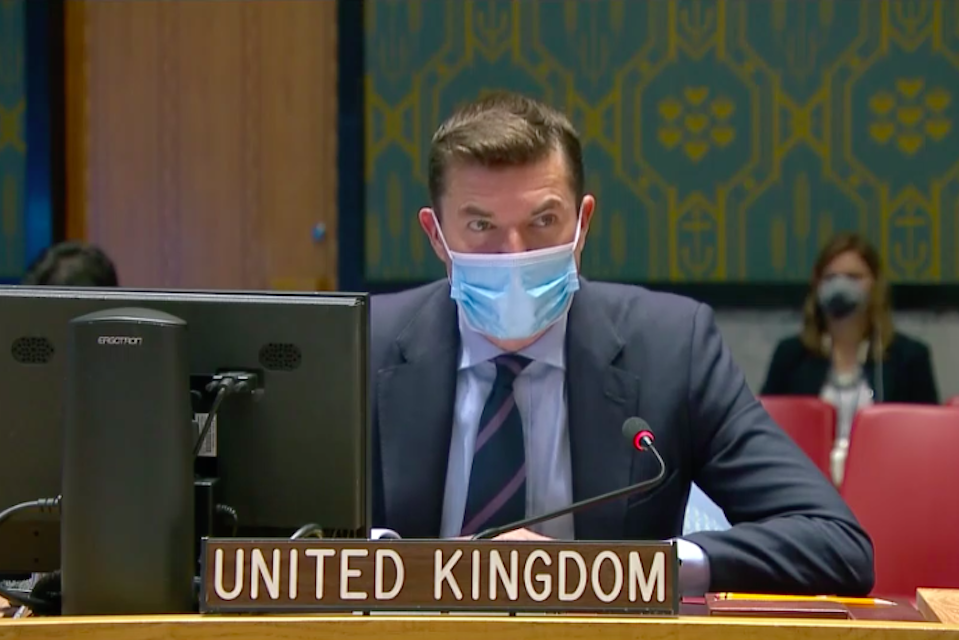Protecting human rights and ensuring regional cooperation in the Great Lakes Region
Statement by Ambassador James Roscoe at the Security Council briefing on the situation in the Great Lakes region

Thank you Madam President, and I want to thank Special Envoy Xia for his briefing.
We share the concerns set out in the Secretary-General’s report about both the immediate and secondary impacts of the COVID-19 pandemic in the Great Lakes region. We commend the efforts to strengthen regional coordination in responding to the pandemic, and we echo the Secretary-General’s call for regional leaders to capitalise and build on this by enhancing cooperation towards peace and development.
While we recognise the impact that Covid-19 restrictions have had on the implementation of the Peace, Security and Cooperation Framework, we call for the resumption of these efforts as soon as possible, including through virtual engagement.
Madam President, I wish to add our voice to those who have welcomed the recent steps taken by the region towards improved relations. As Mr Xia reported, last week’s mini summit between the heads of state of Uganda, Rwanda, Angola and the Democratic Republic of the Congo, as well as the Southern African Development Community initiative to resolve the border dispute between the DRC and Zambia, are two encouraging examples of this. We also welcome the more positive tenor of dialogue between Rwanda and Burundi on normalisation of relations. This momentum from regional talks and dispute resolution efforts must be maintained; continued cooperation between regional powers is crucial to bring peace and stability in the region.
Madam President, I will now turn to some of the individual countries of the region.
We welcome the peaceful transfer of power in Burundi, as well as the resumption of voluntary refugee returns from Tanzania and Rwanda. It is crucial all refugee returns are, and remain, of a genuinely voluntary nature. With Tanzania and Uganda’s elections on the horizon, we call on all national leaders and the international community to ensure both sets of elections are peaceful, free and fair. Reports of shrinking democratic space in this respect are concerning.
As ever, we remain concerned about the humanitarian situation in the region. This is particularly the case in eastern DRC where conflict, human rights abuses by armed groups, and natural disasters are driving displacement and food insecurity. We are also increasingly concerned about the illegal smuggling of natural resources. We underline the need for increased regional cooperation to tackle this illegal smuggling and to restrict financial flows to armed groups operating in eastern DRC.
And, Madam President, we continue to be troubled by the human rights situation in the broader region. We are especially concerned by the increase in sexual and gender-based violence in connection to lockdowns and other COVID-19 response measures. We echo the Secretary-General’s call for leaders of the region to continue to prioritise the protection of human rights and the fight against impunity.
Finally, Madam President, I want to add that we welcome Special Envoy Xia’s consultations with national, regional and international stakeholders on his regional strategy. We were very glad to hear that his report has been submitted to the Secretary-General, and we hope to see greater detail - and the finalisation of this strategy - as soon as possible. I would also underline the importance of Special Envoy Xia’s work across the region to promote more joined-up efforts across the UN family, to ensure the UN is delivering as one. It is crucial that the regional strategy for the Great Lakes is well coordinated with both MONUSCO’s transition strategy in the DRC, as well as the Assistant-Secretary-General Keita’s review of UN engagement with Burundi.
Madam President, thank you very much.